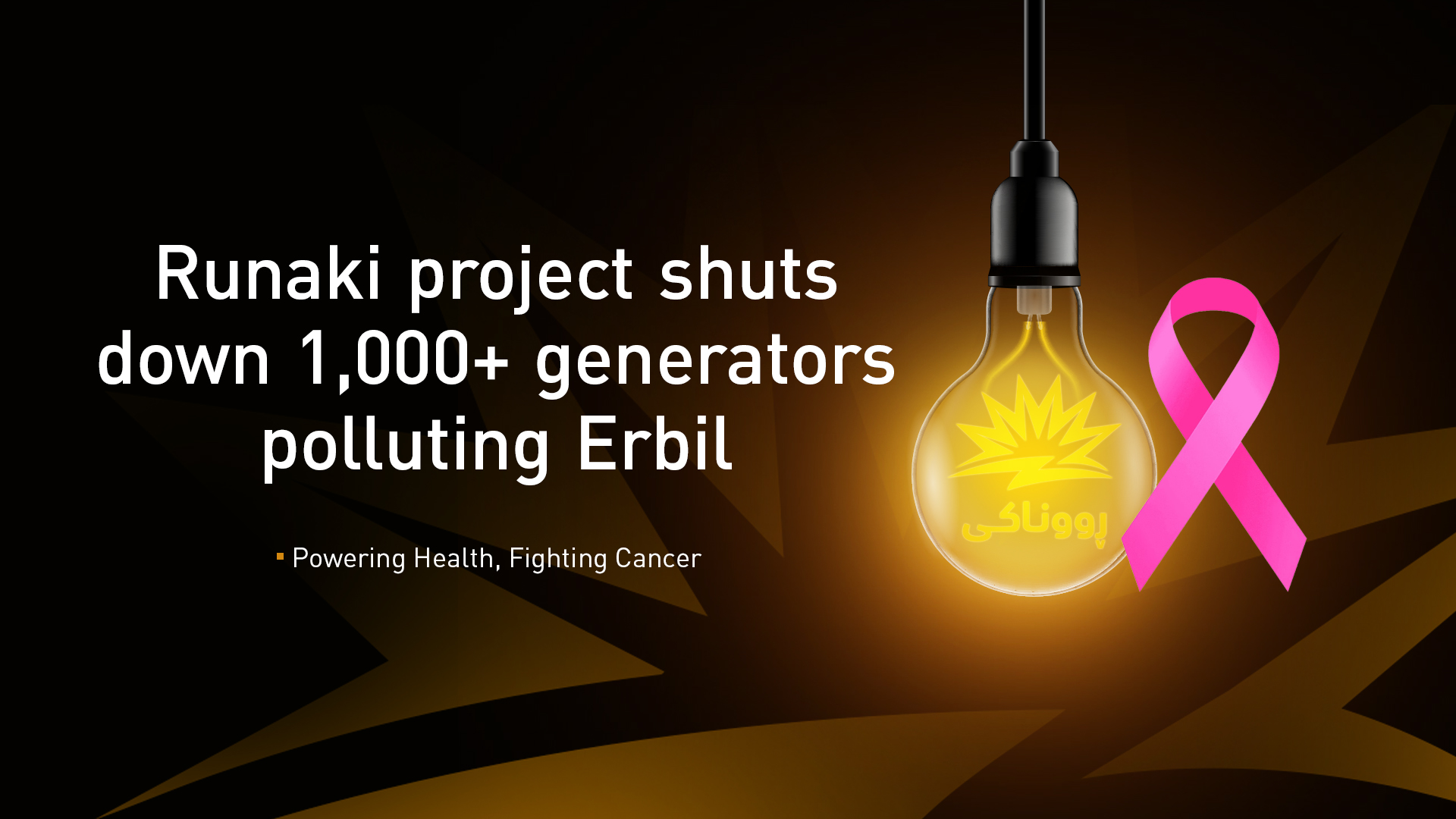Erbil Health Chief Links 'Runaki' Project to Future Cancer Reduction
The 'Runaki' electricity project, by shutting down polluting generators in Erbil, is expected to reduce future cancer rates, according to Nanakali Hospital's director. The project aims for 24-hour power for all citizens by the end of 2026, offering a long-term health benefit.

ERBIL (Kurdistan24) – The director of Nanakali Hospital for Oncology in Erbil has praised the Kurdistan Regional Government’s (KRG) ‘Runaki’ project, stating that the initiative to provide 24-hour electricity is not only cleaning the environment but will also have a positive impact on reducing the number of cancer patients in the future. The project's significant environmental benefits stem from the large-scale shutdown of private diesel generators, a major source of urban air pollution.
Dr. Hardi Jawad, the director of Nanakali Hospital, spoke to the Kurdistan24 website about the long-term public health implications of the ambitious electricity project. "The Kurdistan Regional Government's Runaki project to provide 24-hour electricity will have a very positive impact on reducing the number of cancer patients in the future," Dr. Jawad stated.
He directly linked this anticipated health improvement to the project's environmental success, explaining, "This is because, as part of the project, more than a thousand private generators in central Erbil have been shut down. These generators emitted smoke daily, polluting the environment, which in turn caused citizens to develop cancer."
According to statistics provided by the Runaki (Light) project team, the initiative has already delivered 24-hour electricity to over 2,700,000 citizens, representing nearly 40% of the entire population of the Kurdistan Region. The project is scheduled to reach all citizens by the end of 2026, promising a comprehensive end to reliance on polluting neighborhood generators across the Region.
While the project offers hope for the future, Dr. Jawad confirmed that current cancer statistics show an upward trend. "It's true that compared to last year's statistics, the number of cancer patients has increased this year," he said. However, he provided crucial context, noting that the patient load at KRG hospitals is not solely composed of local residents. "A large number of them are residents of the southern and central provinces of Iraq who are receiving medical treatment in the Kurdistan Region's hospitals, particularly at Nanakali Hospital," he clarified.
This trend of rising cancer cases was echoed by Dr. Yad Naqshbandi, the director of Hiwa Hospital, who announced at a press conference on Tuesday, August 5, 2025, that cancer statistics are increasing annually. He reported that in the Kurdistan Region, nearly two thousand cancer cases have been registered in the past six months alone.
Addressing the resources available for treatment, Dr. Jawad mentioned that the KRG has allocated a special budget for cancer patients and that "philanthropists are a key source of our support in providing medication." He contrasted this with the support received from federal authorities, adding, "The Iraqi Ministry of Health provides us with a very small amount of medicine and medical aid, which is not enough to last even a week."
Looking ahead, Dr. Jawad also announced a significant development for cancer care in the capital, noting that "a bone marrow transplant center will be opened in Erbil in the near future."
